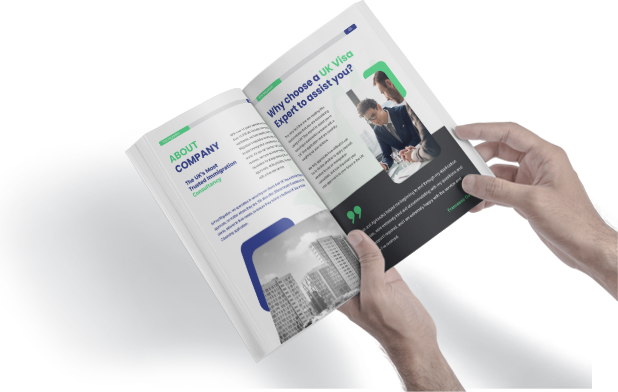Major UK Immigration Changes Confirmed: What’s Coming into Force from July 2025
The UK government has confirmed that significant changes to its immigration system—announced in the May 2025 white paper “Restoring Control Over the Immigration System”—will begin taking effect from 22 July 2025. These reforms signal a stricter approach to visa eligibility, settlement rights, and international student access.
A new briefing from the House of Commons Library outlines what’s changing, when, and who will be affected.
The first wave of changes is already scheduled and confirmed to take effect on 22 July 2025. These include:
Removal of Many Skilled Worker Roles:
- Many medium-skilled (RQF Level 3) jobs will no longer qualify for Skilled Worker visas.
- Only high-skilled roles or those in exempt industries (to be defined) will remain eligible.
Closure of the Social Care Visa Route:
- The Health and Care Worker route will no longer be available for new care worker applicants.
- Existing care workers already in the UK will be allowed to stay temporarily, but no new entrants will be permitted under this category.
Additional Measures Set for Late 2025
The government has also outlined further changes that are expected to come into effect by the end of 2025, although exact dates have not yet been confirmed.
One of the key measures will be a tightening of English language requirements across visa categories. Applicants—including students, skilled workers, and family members—will be required to meet higher levels of language proficiency in both spoken and written English. This change is intended to ensure stronger integration and reduce reliance on interpretation and translation services, but it may also raise barriers for many prospective migrants and their dependants.
In addition, the Immigration Skills Charge is set to increase. This is a fee that employers must pay for each overseas worker they sponsor, and raising it will make the recruitment of foreign labour more expensive. The move is aimed at encouraging businesses to invest in local workforce training, although sectors facing domestic labour shortages may find this especially challenging.
Lastly, reforms are expected to be introduced to the family visa system. While full details have not been published, the government has indicated that a new framework will make it harder for individuals to sponsor family members for reunification. This could involve stricter financial thresholds, longer application processing times, or more limited eligibility criteria, making it more difficult for families to settle together in the UK.
One of the most significant proposed changes is the extension of the qualifying period for Indefinite Leave to Remain (ILR) from five years to ten years for most visa holders. This would mean that individuals on temporary visas—such as skilled workers or students switching into work routes—would need to live in the UK for a decade before becoming eligible to apply for settlement.
This change is not scheduled to come into effect in July 2025, but it is currently under active consultation and forms a central part of the government’s longer-term immigration strategy. If implemented, it would mark a substantial shift in the UK’s approach to permanent residency, effectively making settlement more selective and less accessible to the majority of migrants.
It is important to note, however, that not all groups will be affected. Spouses and partners of British citizens, as well as individuals with pre-settled status under the EU Settlement Scheme, are expected to remain on the existing five-year pathway to settlement.
Changes Affecting International Students
Significant reforms to the student visa system are expected to be introduced in late 2025 or early 2026. While the precise implementation dates have yet to be confirmed, the government’s white paper outlines several major proposals that will impact both international students and the institutions that host them.
One key proposal is the introduction of a new tax on international student income. Under this plan, universities would be required to pay a levy on the tuition fees they collect from overseas students. The government has framed this as a measure to ensure institutions contribute to the costs of migration, although critics argue it may reduce the attractiveness of UK higher education. As this measure would require primary legislation, it has not yet been scheduled and may face debate in Parliament.
Another proposed change is to the Graduate Route visa, which currently allows international graduates to remain in the UK for two years after completing their studies. The government intends to shorten this post-study work period to 18 months. This would give graduates less time to find employment and transition to a skilled worker visa, potentially making the UK a less appealing destination for international talent.
Finally, universities themselves will face increased scrutiny. The government plans to introduce stricter compliance measures for institutions that sponsor international students. Universities that fail to meet updated standards—such as monitoring attendance, ensuring academic progress, and preventing visa abuse—could risk losing their sponsorship licence altogether, cutting off their ability to recruit students from abroad.
How Are These Rules Being Enacted?
The majority of the proposed immigration changes will be introduced through amendments to the Immigration Rules. This process allows the government to implement changes without the need for a parliamentary vote, unless the rules are actively challenged by Parliament. As a result, many of the upcoming reforms can be enacted relatively quickly and with limited legislative oversight.
However, some proposals—such as the introduction of a levy on international student income and the extension of the qualifying period for Indefinite Leave to Remain—will require primary legislation. This means they must go through the full parliamentary process, including detailed scrutiny, debate, and the possibility of amendments before becoming law. These measures are therefore subject to a higher level of public and political accountability.
Summary: What’s Happening and When
What You Should Do Next
Whether you’re a migrant, employer, student, or university, it’s vital to review your current immigration plans and timelines. Those relying on Skilled Worker visas or aiming for settlement under the current 5-year track should prepare for significant changes.
Key action: If you or your employees qualify under current rules, apply or extend before 22 July 2025 to avoid being affected by the new restrictions.















